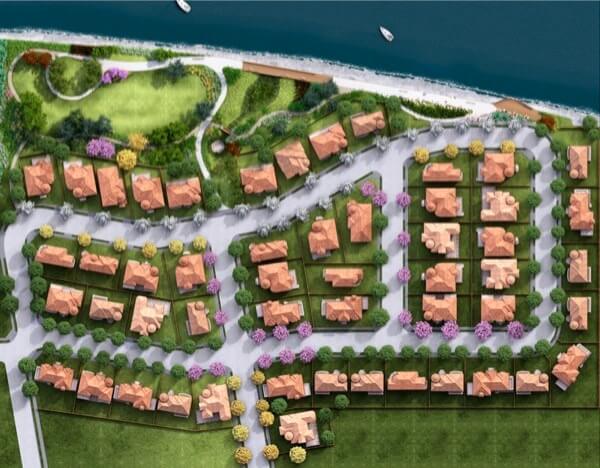By Gina Martinez
State Sen. Tony Avella (D-Bayside) has reached out to the state Department of Environmental Conservation seeking answers about soil contamination and the lack of communication regarding Whitestone’s Waterpointe development site.
Following a November press conference at the site, Avella wrote a letter to DEC Commissioner Basil Seggos requesting a meeting with the commissioner to find out why DEC permitted the developer, the Edgestone Group, to modify the soil cover requirement from Track 2 Residential to Track 4 Restricted-Residential and why DEC allowed the change without first discussing it with elected officials, CB 7 or community members.
In September, DEC announced it was using the lesser grade of soil, called Track 4 Restricted Residential Use, as opposed to the higher grade Track 2 Residential Soil that was originally agreed upon.
The 18-acre waterfront property, located at 151st Place and 6th road, was purchased by Edgestone Group LLC in 2012 for $11 million. The developers originally planned to build 97 two-family townhouse homes plus nine single-family houses on the site, but Community Board 7 and then Councilman Tony Avella negotiated with developers to prevent what they thought would be over-development on the property.
Waterpointe is now being built under a special permit issued by the Department of City Planning that allows for the construction of 52 single-family homes. The development requires environmental oversight because the property had many prior industrial uses over many decades. The land was previously owned by Bayrock Group, which bought the land in 2005 for $25 million. According to reports, Bayrock racked up $150,000 in DEC fines for bringing in toxic soil to the already contaminated site. This led the current developers to enroll in the DEC’s Brownfield Cleanup Program when they took over.
DEC released a letter in September entitled “Explanation of Significant Differences” explaining why changes to the soil fill had been allowed in the remediation plan. But Avella and CB 7 board member and College Point environmentalist James Cervino said the switch from Track 2 residential soil to Track 4 commercial soil will negatively affect future owners in this development. He pointed out that in order to build a house a chemical criteria must be met that guarantees a safe toxicity level for children to play in the yard and for plants to grow there.
Avella said he was incredibly disappointed and disturbed that DEC allowed those changes to the remediation plan and said it was “disgraceful” that it would do so without any input from the community or the area’s lawmakers.
“Using an inappropriate fill could have serious repercussions for whoever ends up living at the site and could restrict how homeowners are allowed to use their own property,” he said. “The quality of soil upon which this development is being built will affect the value of these homes and, in turn, can affect the resulting stability of the neighborhood.”
Seggos responded to Avella in a December letter. He said the lack of communication from 2014 to 2017 about the site was due to the lack of progress. “During this time frame, there was little progress at the site, with the exception of the corrective measures noted in your letter (a matter which was publicly disclosed),” he wrote. “As you know, the original site owner/developer struggled financially and ultimately the site was transferred to new ownership.”
Turning to the modification from Track 2 to Track 4, Seggos wrote that the change in soil was in compliance with the Brownfield Cleanup program and the change in soil grades does not affect the building of 52 single-family homes.
“As long as that modified remedy is protective of public health and the environment, it can be approved, provided that remedy is consistent with local land use,” he wrote. “As we have explained, the change from a Track 2 remedy to a Track 4 remedy does not change what the developers can build at the site and does not affect the Special Permit agreement with the developers because the remedy for this site is consistent with the Special Permit.”
In December Borough President Katz and Council member Paul Vallone (D-Bayside) announced that Edgestone had finally agreed to put a “restrictive deed” in place that would state, “at no time shall the Waterpointe development consist of more than 52 detached single-family houses.”
Avella called the deed a helpful gesture, but not a victory.
“It’s nice but it doesn’t force the developer to actually do anything beyond what he has already verbally committed to,” he said. “Deed restrictions are not enforceable by any city agency and if the developer violated these terms, the community would have to sue the developer.”
He said a formal downsizing of this area would be a more perfect solution. Edgestone also voluntarily created a $272,000 escrow account for future homeowner association members at the development to pay for the first 10 years of expenses as an act of good faith. Avella said the creation of this fund came as a result of pressure from DEC to help future homeowners monitor and manage the environmental monitoring program that DEC is mandating.
Reach Gina Martinez by e-mail at gmart


































